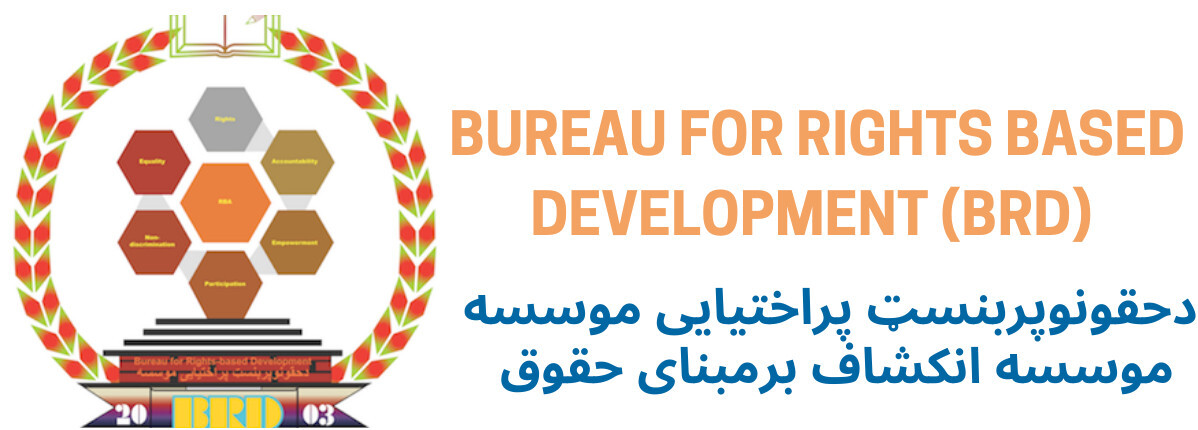Sustainable Livelihood Program
Afghanistan’s Economic Crisis
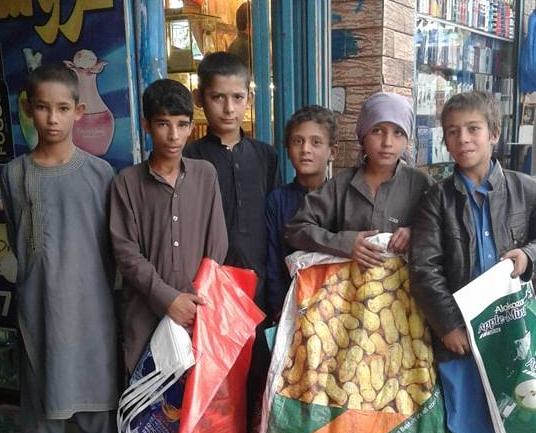

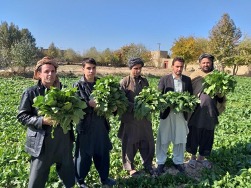
Afghanistan’s Precarious Economic Landscape
Afghanistan was already among the poorest countries globally before the Taliban’s takeover in August 2021. The economy had been deteriorating for years. Poverty Rate: Afghanistan’s poverty rate surged from 44.13% in 2021 to 65.16% in 2024. Unemployment: High unemployment remains a persistent issue, particularly among youth and women.Following the Taliban’s rise to power on 15 August 2021, international donors froze critical funding that had sustained Afghanistan’s economy. This led to a rapid economic decline:
– Currency Depreciation: The Real Effective Exchange Rate (REER) depreciated, contributing to a widening trade deficit.
– Food Prices: Prices for essential food items such as wheat, meat, and cooking oil rose significantly.
– Food Insecurity: As of late 2024, 11.6 million Afghans (25% of the population) were experiencing acute food insecurity (IPC Phase 3 or above), with 1.8 million in Phase 4 (Emergency). Projections suggest this could rise to 14.8 million (32%) by early 2025.
BRD’s Response and Presence in Afghanistan
BRD maintains a full operational presence in Afghanistan and is actively working to mitigate the effects of the crisis. Its programs focus on creating sustainable livelihood opportunities and reducing poverty, especially among vulnerable groups. Key Program Areas:Market-Oriented Vocational Training BRD connects individuals to jobs in demand through tailored vocational training programs.
Key Program Areas
Agricultural Productivity Enhancement Farmers are trained in modern farming techniques, irrigation methods, and watershed management to improve yields and sustainability. Income Generation for Vulnerable Groups Targeted initiatives support women, youth, and marginalized populations to boost household income and build resilience against economic shocks. Rights-Based Approach and Community Empowerment
BRD Response Strategy and Ky Interventions
BRD’s Sustainable Livelihood Program is designed to empower Afghan communities—especially in rural areas—by enhancing agricultural productivity, building local capacities, and promoting economic self-reliance. Our integrated approach aligns humanitarian assistance with long-term development goals to reduce aid dependency and foster resilience.
Enhancing Agricultural Productivity
Over 85% of Afghan households rely on agriculture, yet productivity remains low due to limited access to resources, markets, and technical knowledge. BRD is expanding its support to:
– Improve access to agricultural inputs and training.
– Strengthen community resilience to economic and environmental shocks.
– Promote self-reliance through sustainable farming practices.
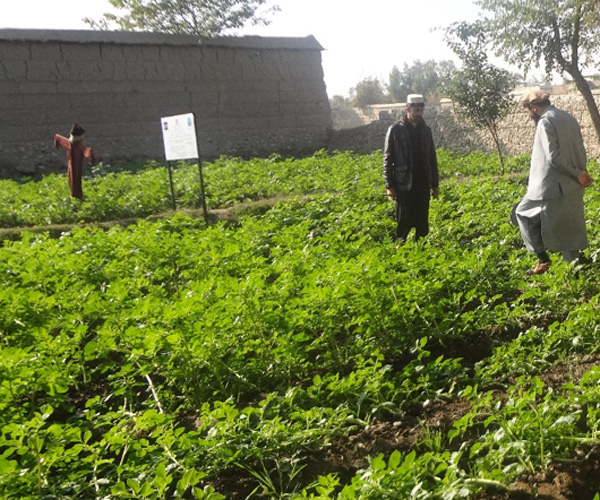
Watershed and Irrigation Management
To ensure efficient water use and sustainable agriculture, BRD is:
– Raising awareness on water laws and irrigation practices.
– Training farmers, community-based organizations, and local institutions.
– Promoting on-farm water management techniques.
– Increasing irrigated land and fostering partnerships for watershed management.
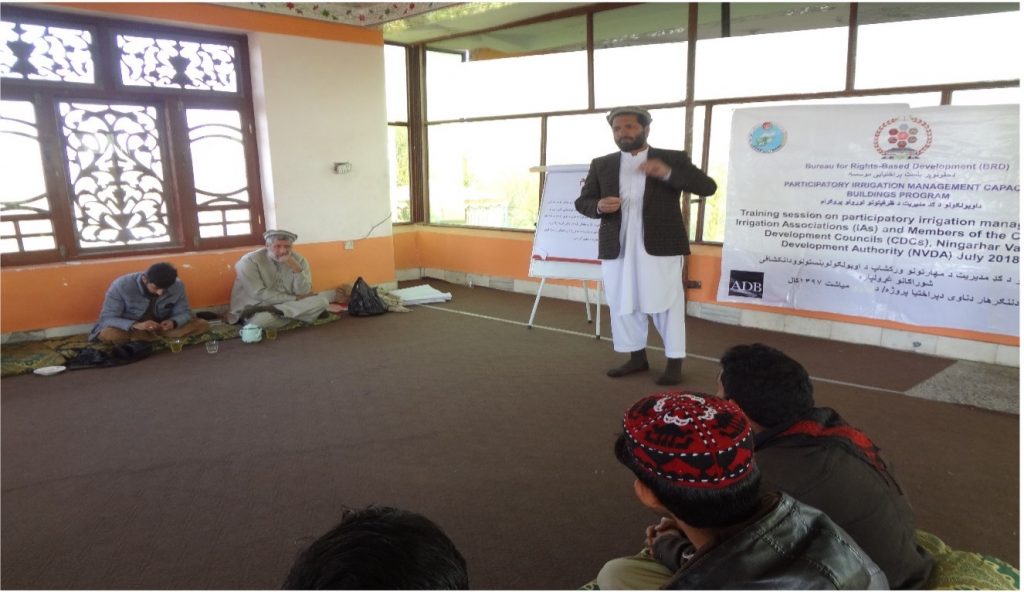
Participatory Irrigation Management (PIM)
In collaboration with NVDA/MAIL and supported by ADB’s WRDIP, BRD has implemented PIM initiatives in Balkh and Nangarhar provinces. Key activities include:
– Social mobilization to encourage community involvement.
– Public awareness campaigns on water resource management.
– Formation and strengthening of Irrigation Associations (IAs) and Water User Associations (WUAs).
– Participatory planning and infrastructure development with local stakeholders.
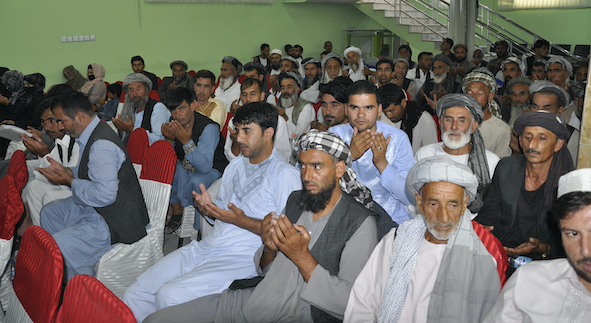
Women’s Economic Empowerment
BRD supports aspiring women entrepreneurs through:
– Training in business planning, development, marketing, and bookkeeping.
– Organizing exhibitions to showcase products and build market linkages.
– Supporting over 400 women-led businesses in embroidery, beekeeping, and other income-generating activities.
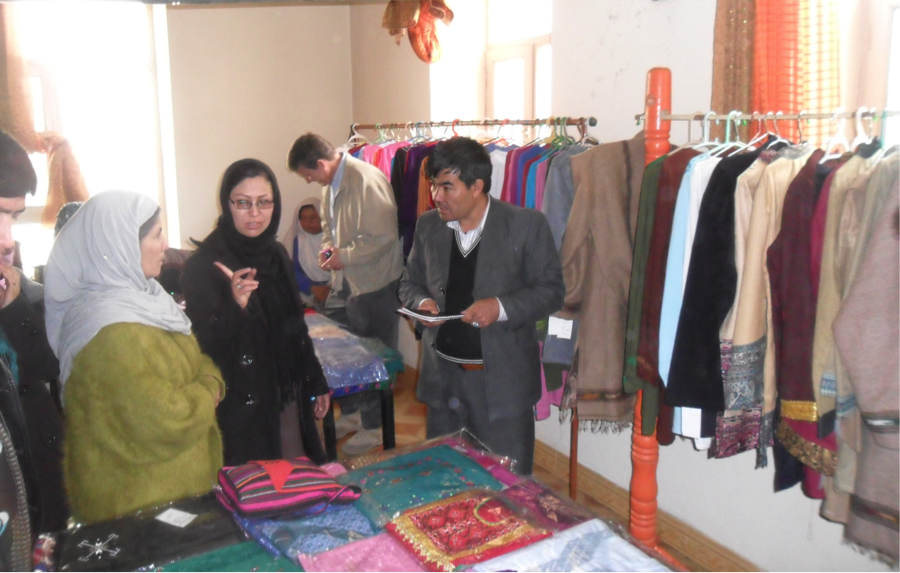
Kitchen Gardening for Women
Empowering Afghan women with culturally appropriate skills, BRD’s kitchen gardening initiative provides:
– Training in home gardening techniques.
– Seeds and fertilizers for a six-month growing cycle.
– Opportunities to improve family nutrition and generate income from surplus produce.
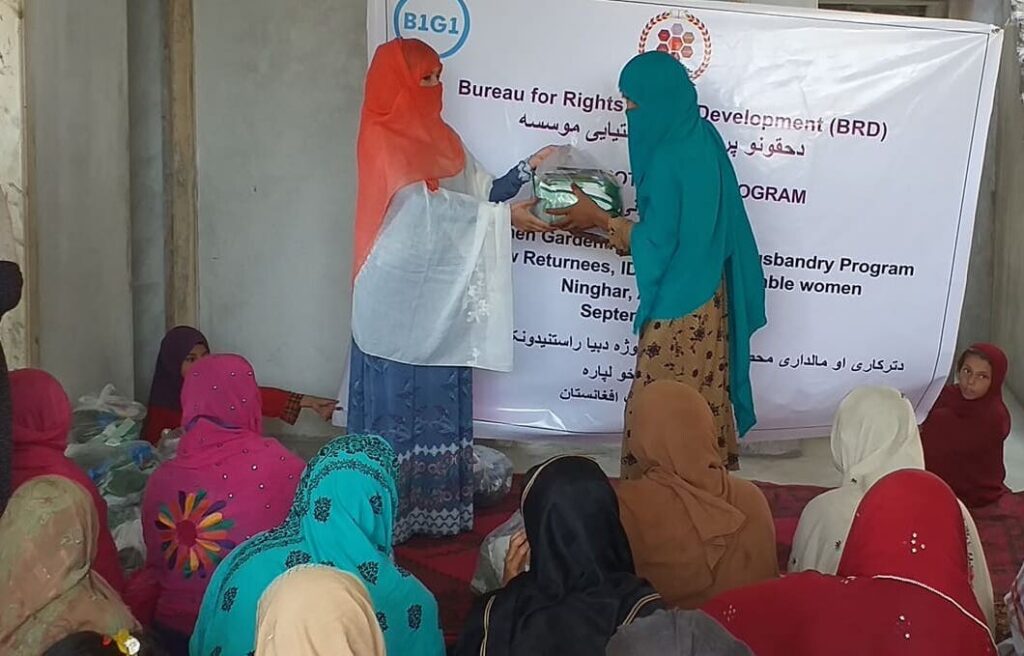
Vocational Training for Vulnerable Youth
Poverty remains the leading challenge in Afghanistan, surpassing even armed conflict in its impact. BRD’s vocational training initiative equips vulnerable youth with marketable skills to break the cycle of poverty and foster economic independence.Training areas include:
– Carpentry
– Welding
– Mobile Phone Repair
– Solar Panel Installation and Maintenance
– Other Practical Trades
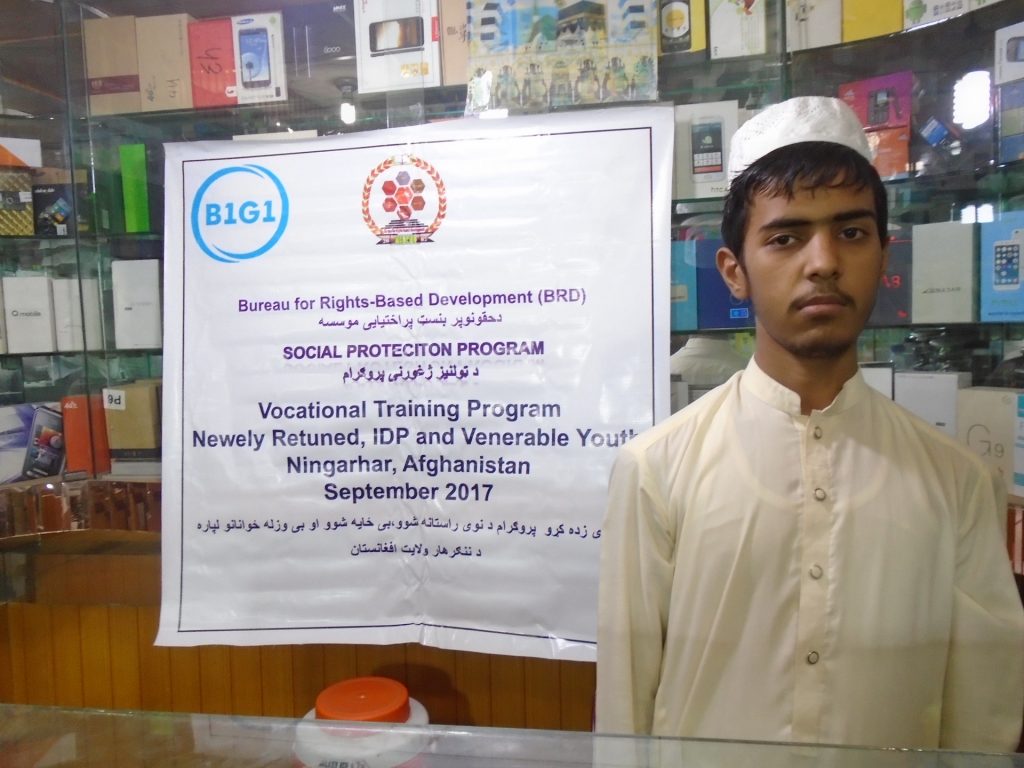
Join Us in Building Resilient Communities
At BRD, we believe that sustainable livelihoods are the foundation of lasting peace and prosperity. Every seed planted, every skill taught, and every woman or youth empowered brings us one step closer to a self-reliant Afghanistan.
🌱 Partner with us to expand our reach.
💡 Support our programs to empower more women and youth.
🤝 Join our mission to transform lives through sustainable development.
Together, we can cultivate hope, resilience, and opportunity—one community at a time.
🔗 [Contact Us] | [Donate Now] | [Volunteer]
Support Our Work